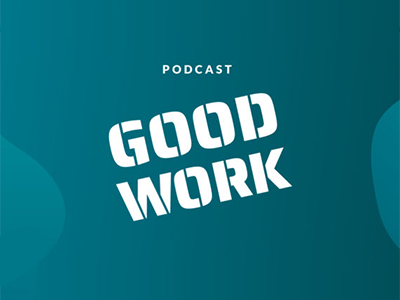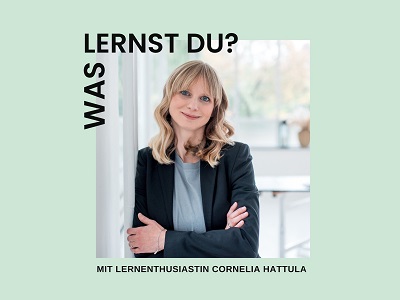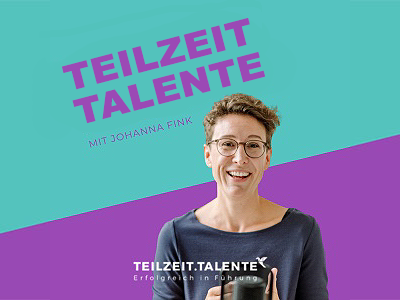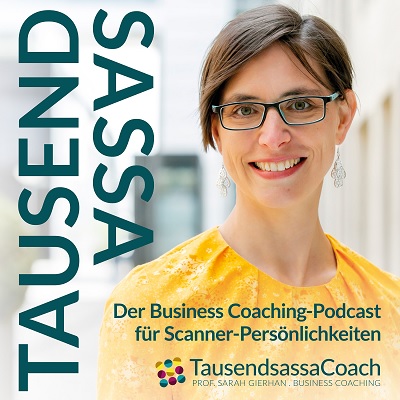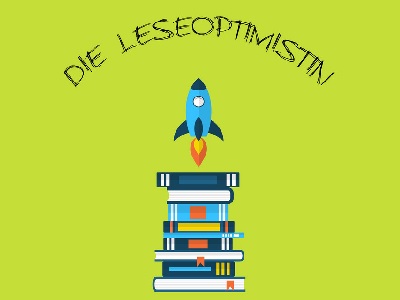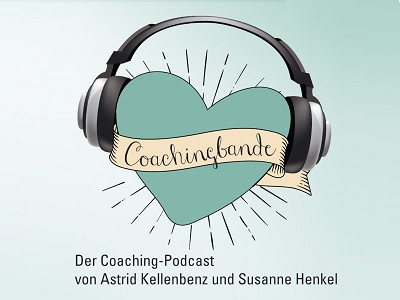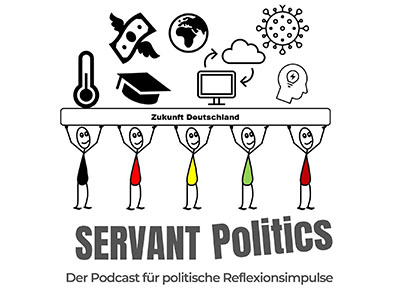Nine podcast heroines
I recently published a post on a social media platform about podcasts and received in response seven recommendations with podcasts from nine women. Well, if that’s not a good opportunity to talk to these women about their great podcasts, content, backgrounds and goals. The result is something to see and hear. Just like the 21 podcasts recommended by the women.
Have fun with the nine podcast heroines!
GOOD WORK
- Website: https://humiq.de/podcast/
- Apple: https://podcasts.apple.com/de/podcast/good-work-der-podcast-f%C3%BCr-zukunftsf%C3%A4hige-arbeitskultur/id1503184434
- Spotify: https://open.spotify.com/show/3pTPPCiBAOcHFgLWa6Zls8
Jule, what is your podcast about or what is the central topic?
Jule Jankowski: The podcast is about the different perspectives on a sustainable work culture and the question of successful cooperation. I call it GOOD WORK. GOOD WORK is deliberately the critical-constructive examination of NEW WORK. New alone is not an end in itself. The first question should always be: What is expedient, helpful, purposeful and good? In the GOOD WORK podcast, I collect lived transformation stories and central, groundbreaking insights from thought leaders on the topic of work culture.
Who do you want to address with this?
Jule Jankowski: I want to address people who are concerned with questions of the transformation of our working world, who enjoy multi-layered conversations about work culture or who are looking for inspiration for their own professional field of activity. Be it from a personal-intrinsic motivation or from a meta-perspective.
Why do you do the podcast?
Jule Jankowski: There are three answers to that, at least. 😊
1 GOOD WORK started as a field research project to trace the perceived changes in the world of work against the backdrop of the Corona pandemic in real time. In the beginning, new episodes appeared daily, most of which followed a fairly clear structure. So the first 100 episodes of GOOD WORK are a kind of learning chronicle of this very special time.
2 I am a social researcher by profession. Social and psychological phenomena have always fascinated me. The topic of work culture coupled with those very phenomena is for me an inexhaustible source of exciting insights that I am very happy to share.
3 I like to call the GOOD WORK podcast an audio salon, quite deliberately. I want to create a very specific atmosphere. An atmosphere that invites people to open up, to give themselves over to their thoughts without reservation and to discover new facets in their own topic themselves. The personal tone, the depth of the conversations, the relating to each other – that is the special GOOD WORK sound for me. And my super fuel to produce at least 165 more episodes.
What is the frequency of your podcast and how long do individual episodes last approximately?
Jule Jankowski: Usually a new episode of GOOD WORK is released every 14 days on Fridays. The episodes are on average 45 to 60 minutes long, sometimes a little longer.
Do you have guests on the show?
Jule Jankowski: GOOD WORK is a dialogue or interview format, which means (almost) every episode has guests. I usually invite a guest, but sometimes there are three of us. Here and there GOOD WORK has specials like the audiography for GOOD WORK Night in January 2023 or the live podcast in April 2023.
And what is your favourite podcast?
Jule Jankowski: I’m a real podcast junkie. My day usually starts with “Apokalypse und Filterkaffee“. Other blockbusters on my list are “Hotel Matze“, “Die Boss” with Simone Menne and “Feelings by Kurt Kroemer. Around New Work, I really enjoy listening to “On The Way To New Work” and also the episodes of “Unboxing New Work” by David Hillmer. My latest discovery is “Was lernst Du?” by Cornelia Hattula.
Was lernst Du?
Prof. Dr. Cornelia Hattula runs the Podcast Was lernst Du?
- Apple: https://podcasts.apple.com/de/podcast/was-lernst-du/id1668226721
- Spotify: https://open.spotify.com/show/3hFZ95rD0XU25s0qCceNvB
- Prodigee: https://was-lernst-du.podigee.io/
Cornelia Hattula: The central topic is learning in all its facets. It’s about “New Learning vs. Old Learning”, about “Good Learning”, innovative learning formats for individuals and teams, different approaches with which different people can learn well and exciting learning projects including material recommendations.
Who do you want to address with this?
Cornelia Hattula: Currently, many HR professionals listen to the podcast – the central topics here are new learning and innovative approaches to learning in organisations. And the podcast is also interesting for every individual who wants to get to grips with their own learning strategy and be inspired by the learning projects of my guests.
Why do you do the podcast?
Cornelia Hattula: I love the medium of podcasting and I really wanted to learn how to make my own podcast. That is one reason. The second reason is that I learn a lot myself through every exchange with the guests – for a learning enthusiast like me, that’s a dream. And the third reason: with the podcast, I want to help break down the negative associations with “conventional learning” and show that individually tailored learning can be something really great.
What is the frequency of your podcast and how long do individual episodes last approximately?
Cornelia Hattula: The podcast appears weekly, always on Monday – the individual episodes are between 15 and about 40 minutes long, depending on the format (pure learning project episodes around 15 minutes, episodes about individual learning strategies between 30 and 40 minutes).
Do you have guests who have their say?
Cornelia Hattula: Yes, in almost every episode I talk to guests about their individual learning strategies and learning projects. There are also a few solo episodes.
And what is your favourite podcast?
Cornelia Hattula: I am a big fan of the “On The Way To New Work” podcast. I listen to it very regularly and draw a lot of inspiration from the conversations.
TEILZEIT TALENTE
- Website: https://teilzeittalente.de/
- Apple: https://podcasts.apple.com/de/podcast/teilzeit-talente/id1598647973
- Spotify: https://open.spotify.com/show/2sa8q3DW6TEZcd97opXVhi
Johanna Fink: My podcast is all about part-time leadership. I myself have had many years of positive experience as a part-time manager and then asked myself why the model is still so rare. One answer I found for myself to this question is that very little knowledge is available about part-time careers and people in this work model are not very visible. That was also the motivation to start the podcast in 2021.
Who do you want to address with it?
Johanna Fink: On the one hand, my podcast is of course aimed at part-time managers and all those who want to become one. On the other hand, I also want to encourage companies to open up to this model and motivate potential supervisors of part-time managers to take this step. The majority of my listeners are women – at the same time it is very important to me to also address men and especially fathers with this topic.
Why do you do the podcast?
Johanna Fink: To make part-time careers and the positive effects on employees and companies visible. I want to show that there are already many great examples in companies. At the same time, I try to make it clear that part-time leadership can work in many different ways – whether in tandem, solo or in a team.
What is the frequency of your podcast and how long do the individual episodes last?
Johanna Fink: My podcast has been released every fortnight since 2022. In the first few months I put out a new episode every week and I’m currently tempted to switch back to this mode because the list of my desired guests has become far too long. 😉
My episodes usually last between 20 and 30 minutes, because my target audience usually doesn’t have much time.
Do you have guests who have their say?
Johanna Fink: In the beginning I recorded some solo episodes, which are still listened to diligently today. Today I only do interviews, because I’ve noticed that that’s what I enjoy most. This way I get in touch with exciting personalities from my home office and continue to learn more myself.
And what is your favourite podcast?
Johanna Fink: I always listen to different podcasts, depending on my mood, and I also use podcasts a lot to educate myself. I recently discovered the den 6-Minuten-Podcast by Dominik Spenst.It’s a great format with crisp content on the topic of positive psychology. A long-running favourite in my media library is the 5050 Podcast by OMR. Here I always find exciting interviews on my favourite topic of fairness and equality.
Tausendsassa
- Website: https://tausendsassacoach.de/blog/?e-filter-02f23a9-category=podcast
- Spotify: https://open.spotify.com/show/2SniBV0HqXgcOGr4gXLbUM
- Apple: https://podcasts.apple.com/us/podcast/tausendsassa/id1609468944
Sarah Gierhan: The podcast offers inspiration and coaching impulses for jack-of-all-trades (generalists). In the solo episodes I share my best strategies for a relaxed and successful life with many interests and talents. In addition, expert interviews talk about valuable insights and solutions for typical challenges of generalists to arrive professionally, be stress-free and productive as well as lead a happy life. In addition, there are live coaching sessions that provide an insight into my work as a coach and a lot of inspiration.
Who do you want to address with this?
Sarah Gierhan: Jack-of-all-trades, i.e. scanner personalities, generalists, multi-talented people, all-rounders… – or simply people who have a wide range of interests or are good at many things. You can easily find out whether you are a jack-of-all-trades in my German-language test: https://tausendsassacoach.de/tausendsassa-test/.
Why do you do the podcast?
Sarah Gierhan: I want more talented jack-of-all-trades to be able to live and work in a fulfilled and satisfied way. Because our society needs happy generalists who can develop their full potential.
What is the frequency of your podcast and how long do the individual episodes last?
Sarah Gierhan: There is a new episode every 3 weeks, always on Tuesdays. They last about 30 minutes. I try to keep it short, but sometimes that doesn’t work with the interesting people I talk to. 😀
Do guests have their say with you?
Sarah Gierhan: Yes, I do a mix of solo episodes and interviews with jack-of-all-trades or experts on the topics of work, stress, productivity and the like.
And what is your favourite podcast?
Sarah Gierhan: I don’t have one in particular. Since I no longer commute, I unfortunately rarely listen to podcasts, but I often get good summaries through my husband, who listens to various podcasts up and down while doing housework. 😀
Die Leseoptimistin
Angela Hamatschek runs Die Leseoptimistin.
- Website: https://www.leseoptimistin.de/
- Spotify: https://open.spotify.com/show/0KBYKTxAHZGrAGNUmJooT0
- Apple: https://podcasts.apple.com/us/podcast/die-leseoptimistin/id1497464295
Angela, what is your podcast about or what is the central topic?
Angela Hamatschek: I talk about management books that I have read and share my most important insights, thoughts and suggestions with another reader. So the listeners get a very personal summary of the contents and reading recommendations.
Who do you want to address with this?
Angela Hamatschek: Reading friends like me and people who are looking for food for thought, are curious and want to develop themselves further.
A few of the books are written for tax consultants, I have them in my programme because they are my customers. But even from these books, impulses can always be derived for every branch.
And of course all those who would like to read more themselves but don’t get around to it.
Why do you do the podcast?
Angela Hamatschek: Because I read so many management books myself and love to talk about these books with others. When I had an intensive discussion with a tax consultant about a book at the end of 2019, I thought: I should have recorded this now so that everyone could hear it, because there were so many ideas and thought-provoking impulses. I then started it in January 2020.
Two side effects that I didn’t even have in mind at the beginning:
- Through the podcast preparation, my own reading experience becomes much more intense and I keep discovering new aspects myself through the thoughts of the fellow reader.
- I get to know people from the most diverse fields, to whom I had no connection before. Some of my fellow readers are LinkedIn contacts I met through the podcast. (Anyone who feels called and would like to discuss a book with me can simply radio me on LinkedIn).
What is the frequency of your podcast and how long do the individual episodes last?
Angela Hamatschek: At the beginning it was one episode per month, then I shortened it to fortnightly. And each episode lasts about 45 minutes.
Do guests have their say?
Angela Hamatschek: Yes, every time. And they either suggest a book to me or I currently have one on my reading list that interests the other person. That’s another brilliant side effect: books are suggested to me that I haven’t heard of before and I’m always thrilled by the many great books that are out there.
And what is your favourite podcast?
Angela Hamatschek: I love listening to the storytellers on The Moth Radio Hour. Also a discovery I made through one of the books – Storyworthy. And for fun on our camper van tours Fest & Flauschig and Baywatch Berlin.
Coachingbande
Susanne Henkel and Astrid Kellenbenz run Coachingbande – the systemic coaching podcast.
- Website: https://www.coachingbande.de/
- Spotify: https://open.spotify.com/show/6quuqE6urpSHi8HEpKwmnx
- Apple: https://podcasts.apple.com/de/podcast/coachingbande-der-systemische-coaching-podcast/id1312200661
Susanne Henkel: The Coachingbande is a systemic online coaching academy. We train systemic coaches, new work coaches and systemic organisational developers and would like to offer all professional groups working in the psychosocial environment, in coaching, counselling or training a wide range of online training opportunities.
Astrid Kellenbenz: In our coaching podcast you will find coaching methods, tools, supervision and hacks for your daily work. The Coachingbande podcast is the auditory accompaniment for systemic coaches and coaches from other schools to reflect on their work, to prepare for topics and cases and for further training.
Who do you want to address with this?
Astrid Kellenbenz: We are addressing colleagues in the narrower and broader sense. We listen to systemic coaches, life and business coaches, NLP practitioners, HR managers, consultants, trainers and therapists.
Susanne Henkel: But we are also listened to by people who are interested in how coaching works, what it can do and where the limits lie, and who want to try out simple tools in the self-coaching process.
Why do you do the podcast?
Susanne Henkel: Because the topic of coaching and quality in coaching is close to our hearts. We stand for transparency in this field. We want to clarify what good trainings look like and also how to filter out less good trainings in the jungle.
Astrid Kellenbenz: Yes, and we would like people who work with people (coaches, counsellors and trainers) to be able to get constant and low-threshold further training and information on a wide range of topics via the podcast.
We also want to share our enthusiasm for the systemic-constructivist approach to coaching with as many people as possible, because it is a wonderful way to a resistance- and stress-free life, the key to which lies in the concepts of self-leadership and self-efficacy.
What is the frequency of your podcast and how long do the episodes last?
Susanne Henkel: Weekly, every Friday, and sometimes an additional podcast quickie in between. The Friday episodes last between 40 and 60 minutes, the Podcast Quickie more like 20 – 30 minutes.
Do you have guests on the show?
Astrid Kellenbenz: We always host the podcast together and we often invite interview guests to the studio. These are experts from the coaching business who report collegially on their methods or coaching approaches or share insights into their niche or positioning. For us, the tenor is always that we can achieve more together than against each other. That means we share a lot of insights and experiences.
And what are your favourite podcasts?
Susanne Henkel: I have quite a few favourites:
- Fest und Flauschig,
- Baywatch Berlin,
- Apokalypse und Filterkaffee and
- Feelings by Kurt Kroemer.
Astrid Kellenbenz: And I really enjoy listening to the following podcasts:
- Hotel Matze,
- Ab 17 by Kathrin and Tommy Wosch,
- Hörbar Rust and
- 1plus1 Freundschaft auf Zeit.
Servant Politics
- Spotify: https://open.spotify.com/show/4IS8c7qJusNQD7HY55Nbuh
- Apple: https://podcasts.apple.com/de/podcast/soziologische-perspektiven/id1587872051
Claudia Lutschewitz: We are in search of ideas and impulses for political action, and in our interviews we look into the political future. The topic is “Politics of the Future”. With us, a wide variety of people from civil society have their say and want to share impulses & thoughts on the politics of tomorrow.
In our impulse podcast interviews we always ask the same 4-6 questions:
- What do you think is the role of politics?
- How do you perceive politics right now?
- What are your wishes for the politics of the future?
- What does the politics of the future feel like?
- Which 2-3 (heartfelt/focused) issues would you tackle if you were Federal Chancellor?
- Did I not ask you a question that you would have liked to have answered on the topic of “politics of the future”?
And in our podcast specials we talk to guests about topics on which they have individual and special expertise or whose topics are particularly close to their hearts.
Who do you want to address with this?
Kerstin Bertsch: Everyone who is interested in jointly shaping the politics of tomorrow and who would like to make their voice heard. For example, politicians, young politicians, those interested in politics or already involved, voters, young and old, i.e. all generations.
Why do you do the podcast?
Kerstin Bertsch: We want to make voices on the topic of politics of the future audible, i.e. to give space to thought sparks and impulses. So that ideas for a common political transformation become loud and so that we can work together on the political system in the best possible way.
What is the frequency of your podcast and how long do the individual episodes last?
Claudia Lutschewitz: We don’t have a specific frequency – we publish as much as our time slots allow for editing, hosting and maintaining our podcast padlets on the homepage. So between 1 to 4 podcasts a week … 😉
Our impulse podcasts are between 10 and 25 minutes, our podcast specials between 35 and 55 minutes.
And what are your favourite podcasts?
Claudia Lutschewitz: I can’t talk about favourite podcasts, but I have a few that I listen to again and again. These include the “ZEIT-Podcast“, the podcast “Ich-Wir-Alle” by Martin Permantier and the podcast “Der Weg der Stoa” by Dr. Alexander Zock.
Kerstin Bertsch: I actually listen to a wide variety of podcasts depending on the topics of the individual episodes. What I listen to regularly are true-crime podcasts. I particularly enjoy listening to “Weird Crimes” or “Verbrechen von nebenan“.
On your mark, get set, podcast
Do you already know one or the other podcast? That would be great, because all the female podcasters mentioned deserve to be heard. Are there any new recommendations for you? Great. Feel free to listen and get in touch with the creators. It’s definitely worth it! I enjoyed the conversations a lot and through the great recommendations I also discovered new podcasts for myself.
Notes:
If you like the post or want to discuss it, feel free to share it with your network.
Michael Schenkel has published other articles in the t2informatik blog, including

Michael Schenkel
Head of Marketing, t2informatik GmbH
Michael Schenkel has a heart for marketing - so it is fitting that he is responsible for marketing at t2informatik. He likes to blog, likes a change of perspective and tries to offer useful information - e.g. here in the blog - at a time when there is a lot of talk about people's decreasing attention span. If you feel like it, arrange to meet him for a coffee and a piece of cake; he will certainly look forward to it!
